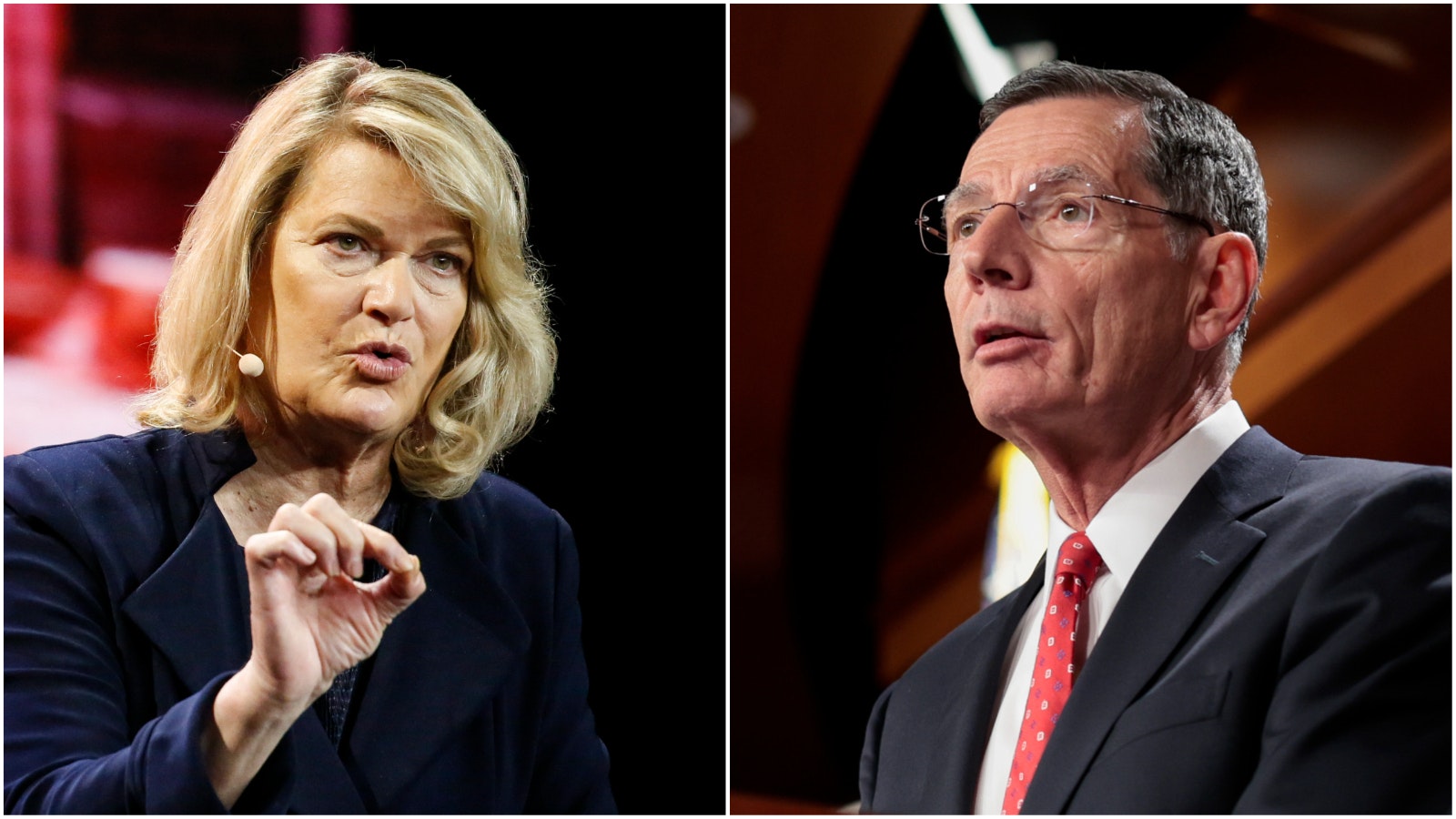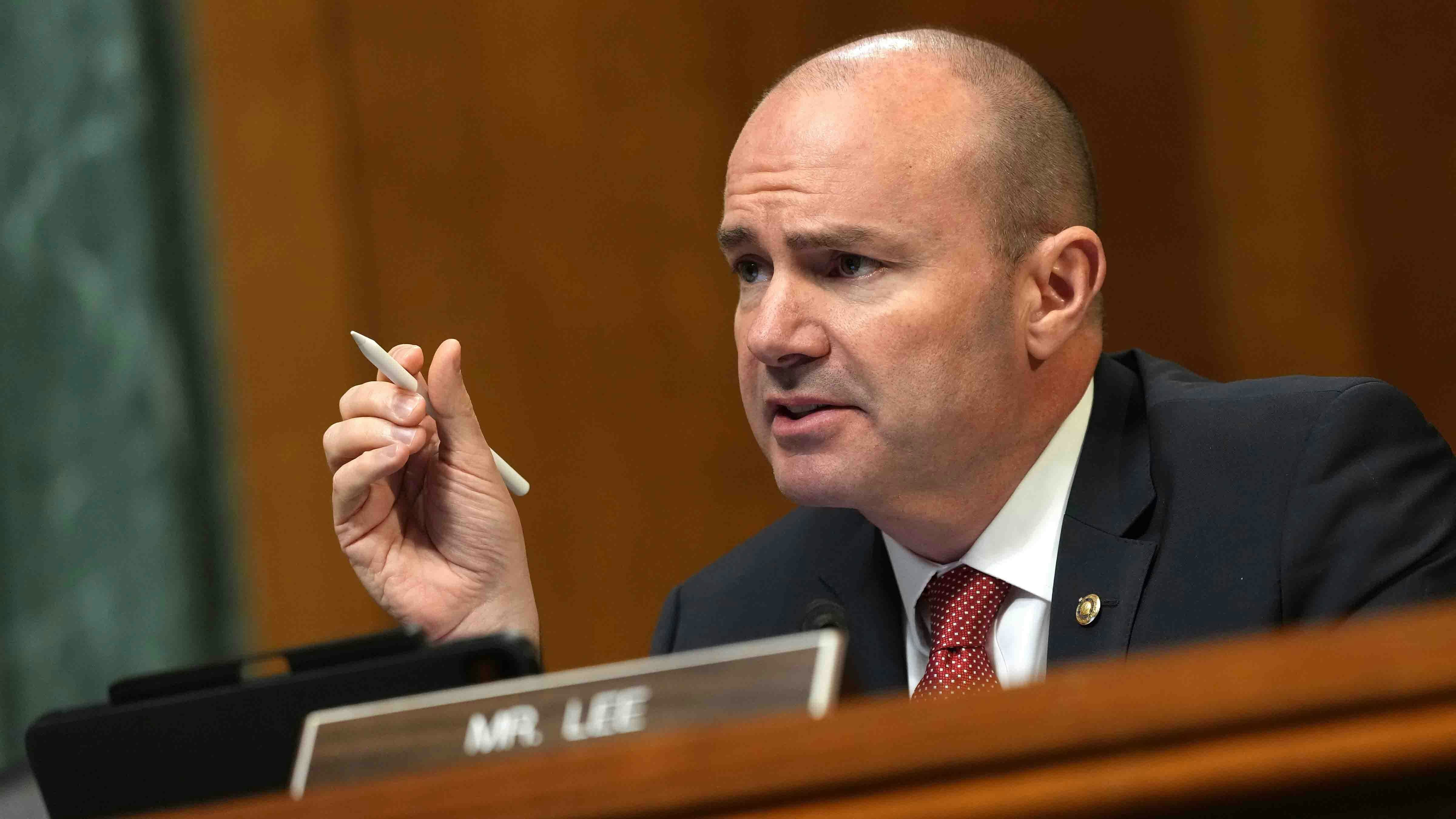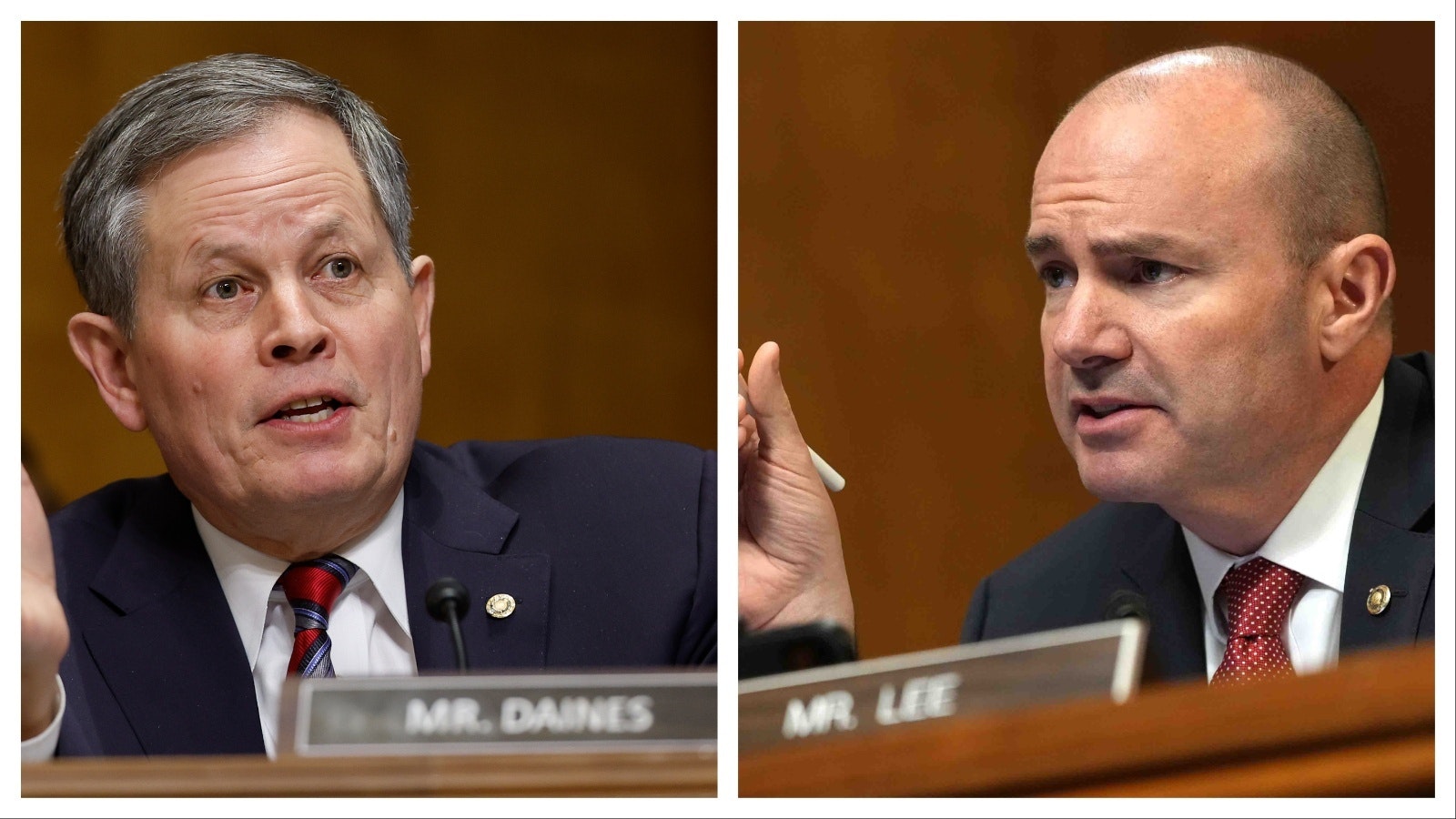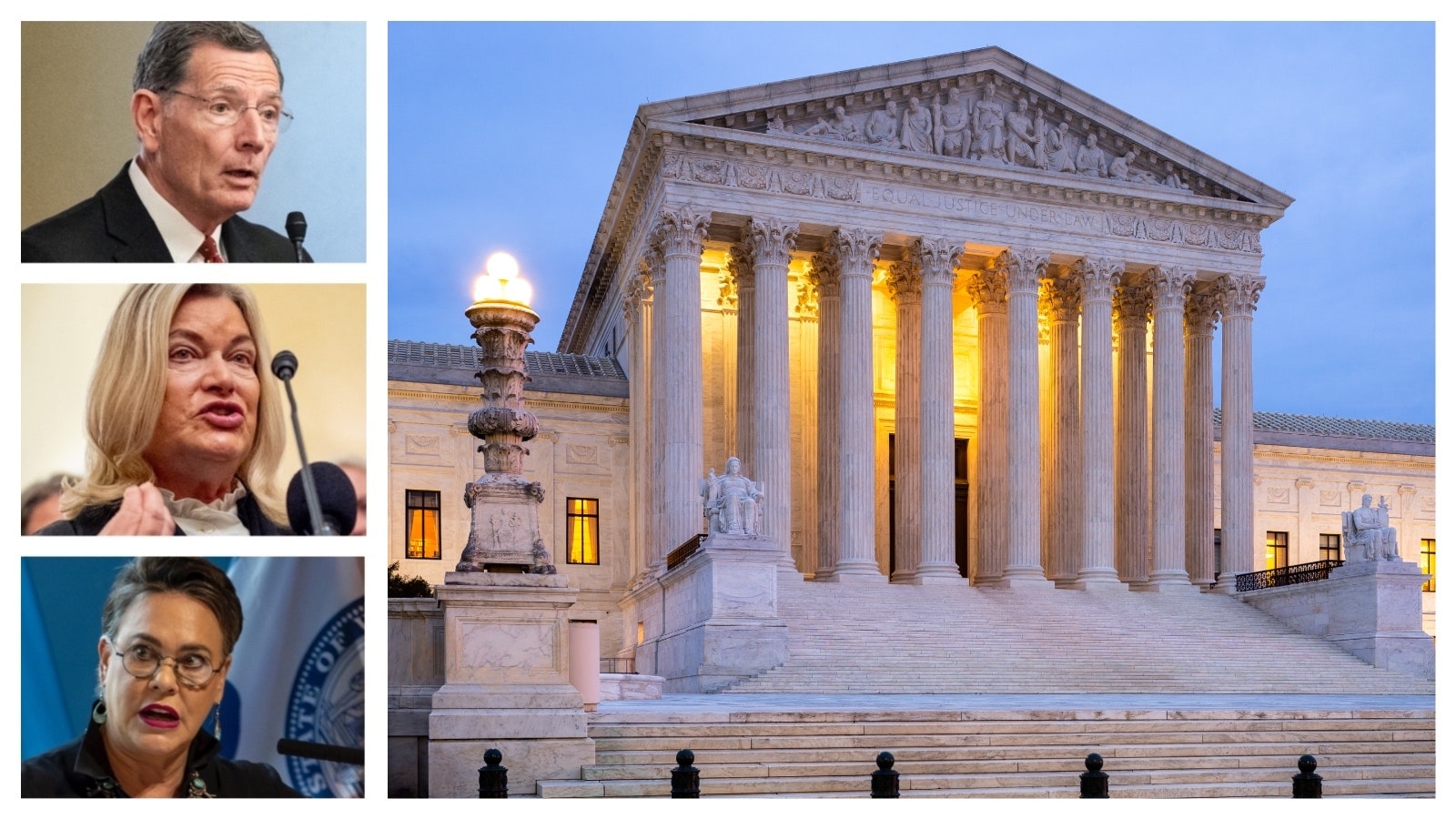If U.S. Sens. John Barrasso and Cynthia Lummis are in favor of a bill that would codify same-sex marriage in America, they aren’t telling anyone.
The Respect for Marriage Act will need the support of 10 Republicans in order to be considered in the Senate. The margins will be slim, but five GOP senators have already indicated they will likely support the bill.
The bill comes in direct response to the U.S. Supreme Court’s decision to overturn the landmark abortion ruling Roe vs. Wade in June, seen as a prominent win for pro-life and state’s rights advocates.
Barrasso and Lummis have not indicated how they will vote on the measure. A spokesperson for Barrasso said the senator “will wait until the bill comes to the floor of the U.S. Senate before he reviews the text and makes a decision.”
Lummis told Cowboy State Daily that she’ll make a decision after reviewing the legislation.
H.R. 8404 would prohibit any state from refusing to recognize an out-of-state marriage based on sex, race, ethnicity or national origin, regardless of the individual state laws. It would grant the U.S. attorney general the authority to enforce that rule through civil action.
Brigham Young law professor Lynn Wardle opnined that this bill is written in a way that, “is substantively biased to circumvent state policies that do not allow or recognize same-sex marriage” and is “a violation of federalism.”
The bill would also fully repeal the Defense of Marriage Act, a 1996 law signed by then-President Bill Clinton that defined marriage as being the union of a man and a woman.
Justice Clarence Thomas argued in the recent abortion overturn that the Supreme Court should reconsider other landmark cases establishing the rights to obtain contraception, engage in private sex acts and marry someone of the same sex.
“We could consider whether any of the rights announced in this Court’s substantive due process cases are ‘privileges or immunities of citizens of the United States’ protected by the Fourteenth Amendment,” Thomas wrote. “To answer that question, we would need to decide… whether the Privileges and Immunities Clause protects any rights that are not enumerated in the Constitution and if so, how to identify those rights.”
These comments have given LGBTQ advocates and certain legislators a sense of urgency to protect same-sex marriage. Some have speculated the passage of the Respect for Marriage bill could give the Democratic Party renewed energy and increased voter support in the midterm elections. The party is expected to fare poorly in these elections due to inflation, high gas prices and President Joe Biden’s low popularity.
Certain pro-choice advocates criticized the Democrats for failing to pass a bill codifying abortion as a lawful right prior to the Supreme Court decision. Now, the same-sex marriage bill may offer the party an opportunity for redemption.
Forty-seven Republicans supported the bill when it passed through the U.S. House on July 19. If a similar percentage of Senate Republicans offer their support, the bill will pass.
Cheney: Yes, Hageman: Unknown
U.S. Rep. Liz Cheney was one of the 47 who supported the bill. Her leading primary opponent Harriet Hageman has refused to provide a stance on same sex marriage.
A few different Hageman campaign mailers have criticized votes Cheney has made. These include her recent support for gun control legislation. But these flyers have not attacked the congresswoman for her vote on The Respect for Marriage Act.
Although the bill has gained new momentum, The Respect for Marriage Act is not a new piece of legislation. It was first introduced in 2009 and was reintroduced in 2011, 2013 and 2015, never receiving a vote outside of committee.
Sara Burlingame, Wyoming Equality executive director, is optimistic about Lummis and Barrasso offering their support due to Lummis’ support for Title IX laws and comments Barrasso made about equality.
But Barrasso ran a platform committee at the 2016 Republican National Convention that opposed same-sex marriage as part of the party’s policies.
The senators have issued no public statements on the topic and have been more focused on addressing the issue of inflation.
Sen. John Cornyn, R-Texas spoke against the bill in a recent interview with Vox.
“I think it’s completely unnecessary,” he said. “The Supreme Court has held that the Constitution protects same-sex marriage. It’s under no threat of being reversed or overruled so this is all part of our Democratic colleagues’ attack on the Supreme Court, which has had dangerous consequences.”
A June Politico/Morning Consult poll found 51% of Republicans oppose this legislation. The Wyoming GOP Party has crafted resolutions that define marriage as being a union between a man and a woman and complain that sexual orientation has become a prevalent issue in America.
“In Wyoming, people are just exhausted by the State Central Party whipping up fear, whipping up animosity,” Burlingame said. “They are telling lies and it has made people scratch their heads.”
The Supreme Court weakened the Defense of Marriage Act in 2013 and two years later ruled that the Constitution guarantees same-sex marriage rights. In the years following that decision, A Gallup poll shows Americans’ support for same-sex marriage has increased by 11%, with more than seven out of ten Americans now in favor of enshrining same-sex marriage as a legal right. This is up from 27% support in 1996.
“Before the Supreme Court legalized same-sex marriage, people were coming out, but it was separate but equal,” Burlingame said. “For a lot of people, it broke their damm hearts.”
Burlingame said the change in public opinion occurred partially due to LGBTQ activists changing the public’s perspective on the issue from being a policy issue to a human issue.
As of 2021, Gallup found that 7.1% of U.S. adults identify as lesbian, gay, bisexual, transgender, or something other than straight or heterosexual.
“Who doesn’t want their neighbor to miss out on marrying the woman they love?” Burlingame asked. “What we learned was to shut up about policy and be a human with each other.”
As of 2017, an American Values poll found that 62% of Wyoming residents supported same-sex marriage, which was legalized in the state prior to the Supreme Court decision in 2014.
“I hope (the vote) is a big yawn,” Burlingame said. “It’s a very Wyoming thing to do. The Wyoming Constitution is very explicit about the guarantee of equality for all citizens.”
A vote to consider the bill probably won’t happen Friday as Sens. Joe Manchin, D-W.Va. and Lisa Murkowski, R-Alaska are temporarily out after testing positive for Covid earlier this week. There will be some urgency from Democrats to get it through next week as the Senate begins a month-long recess on Aug. 6.





